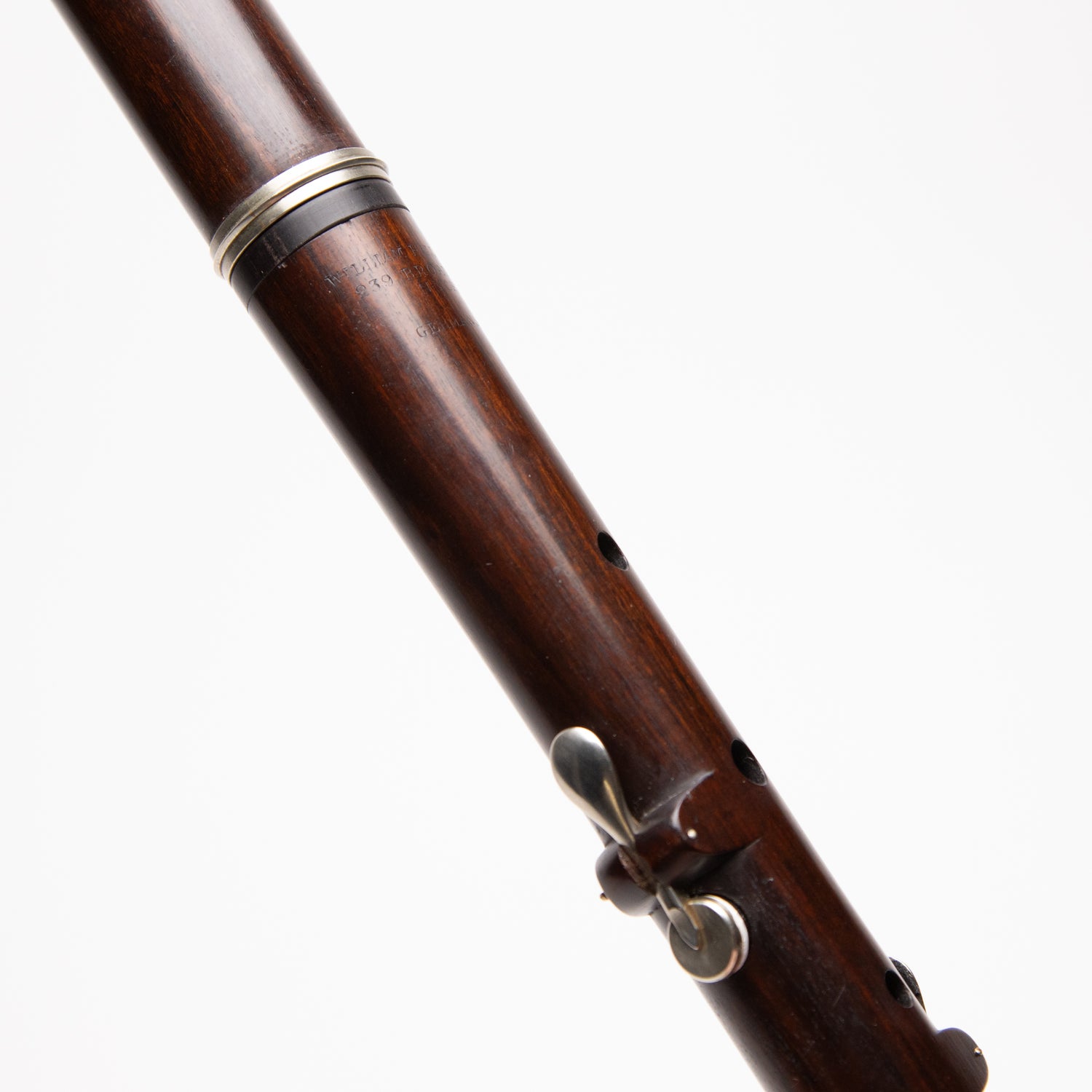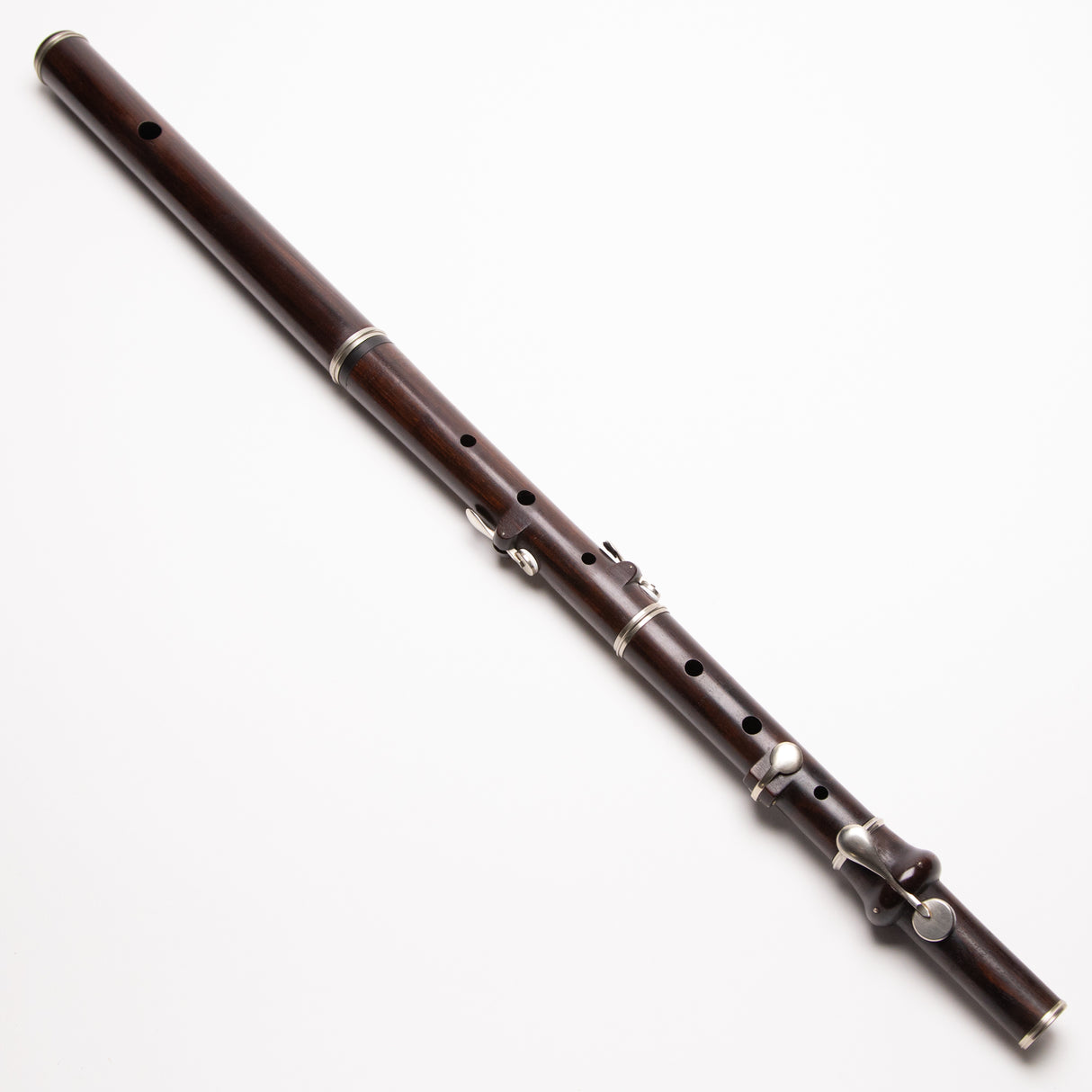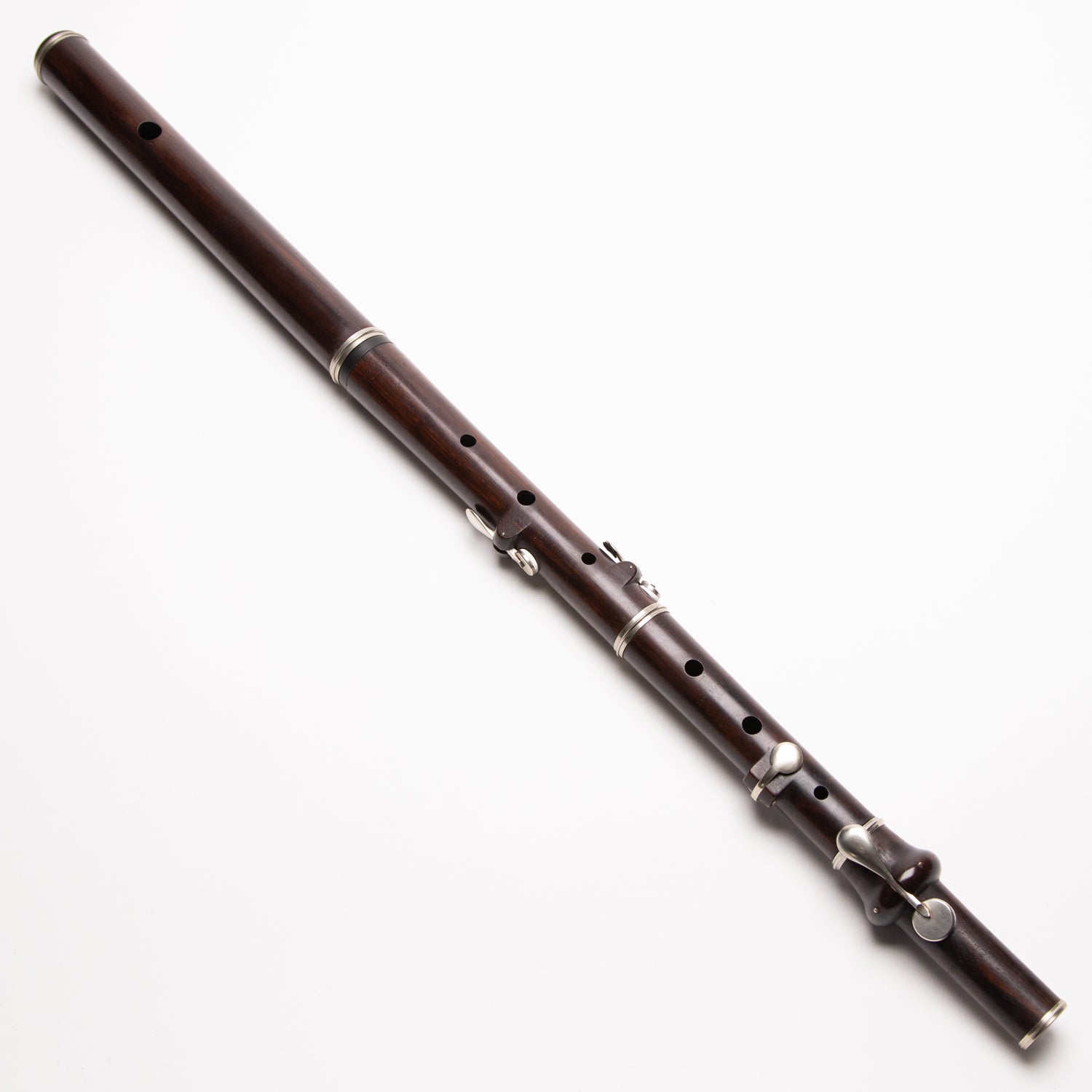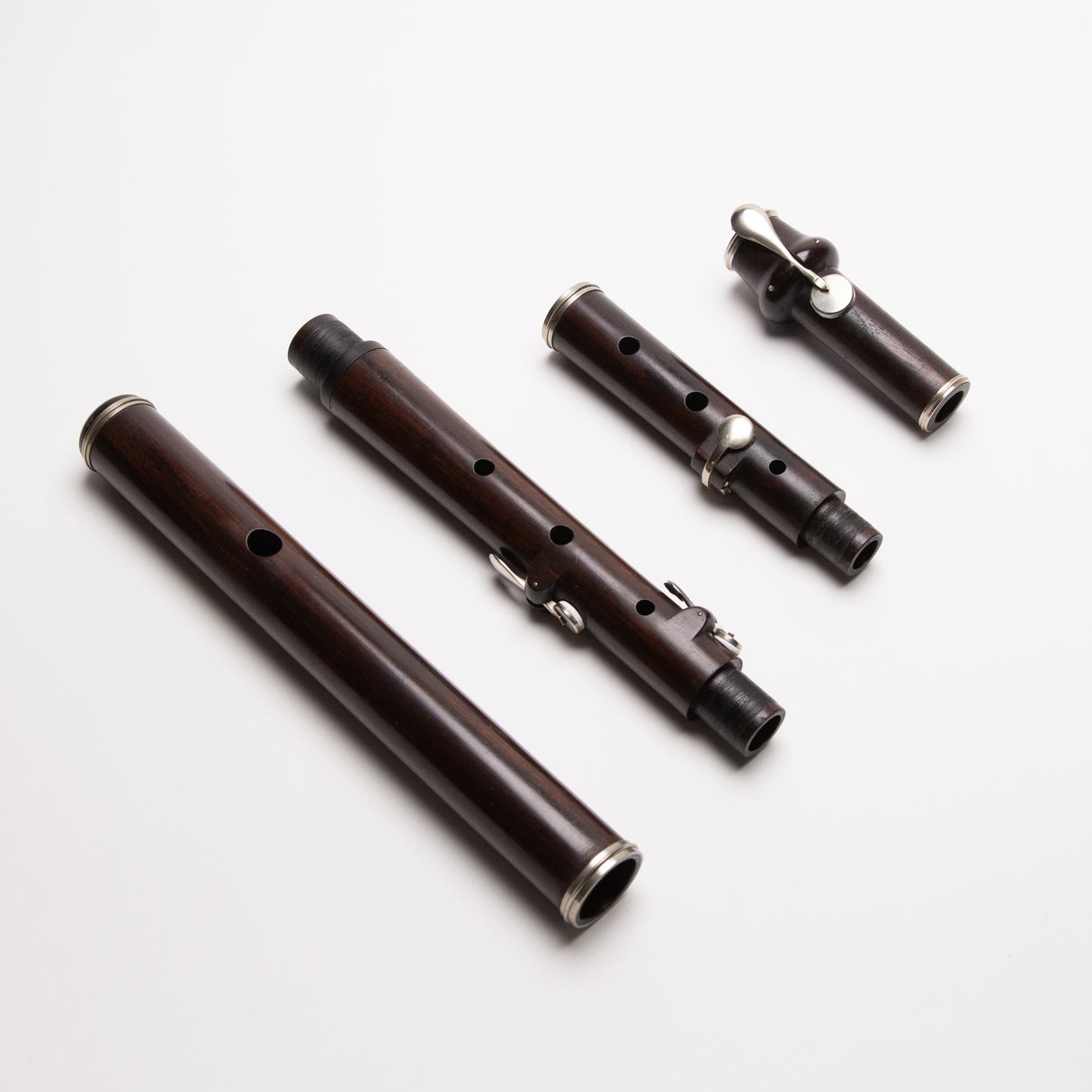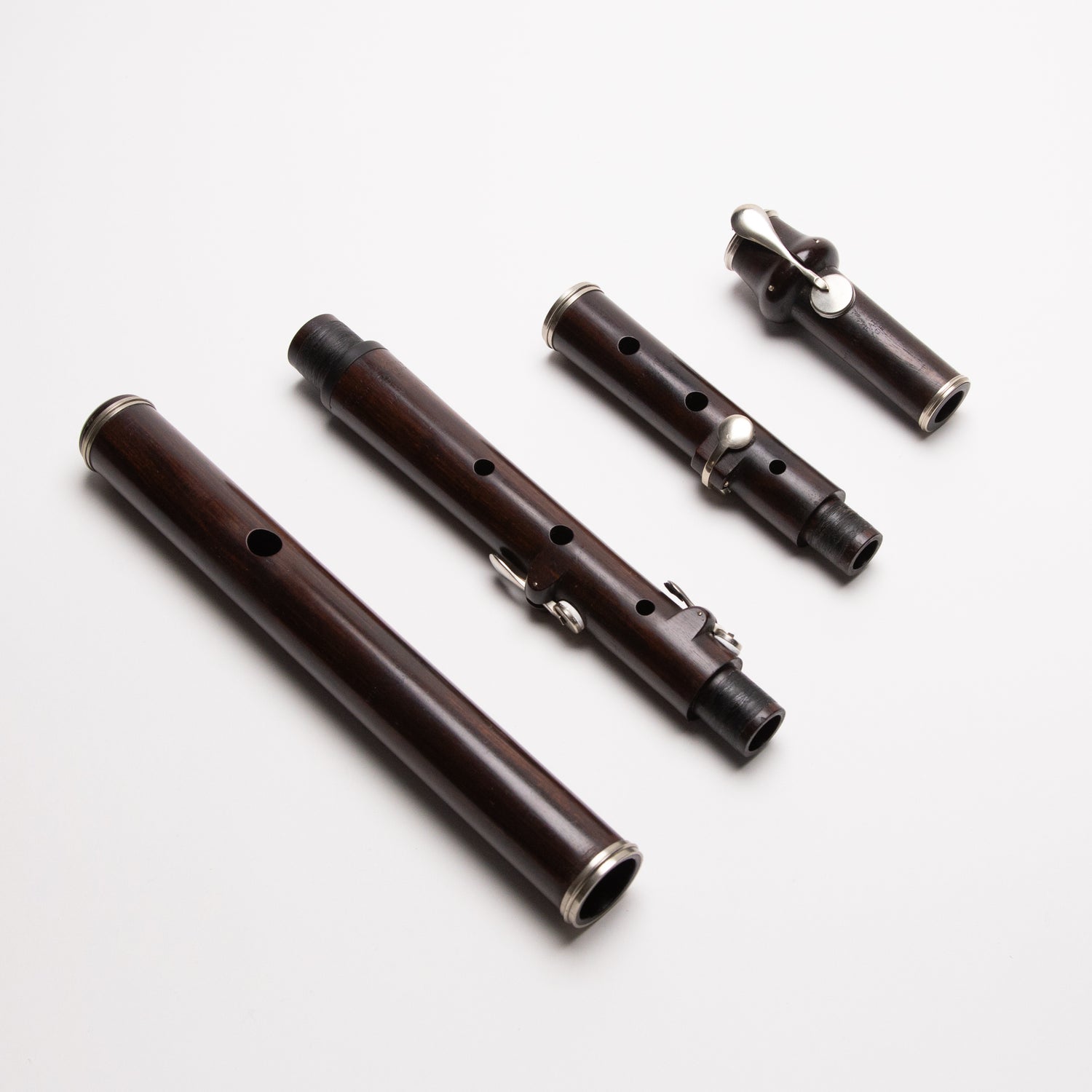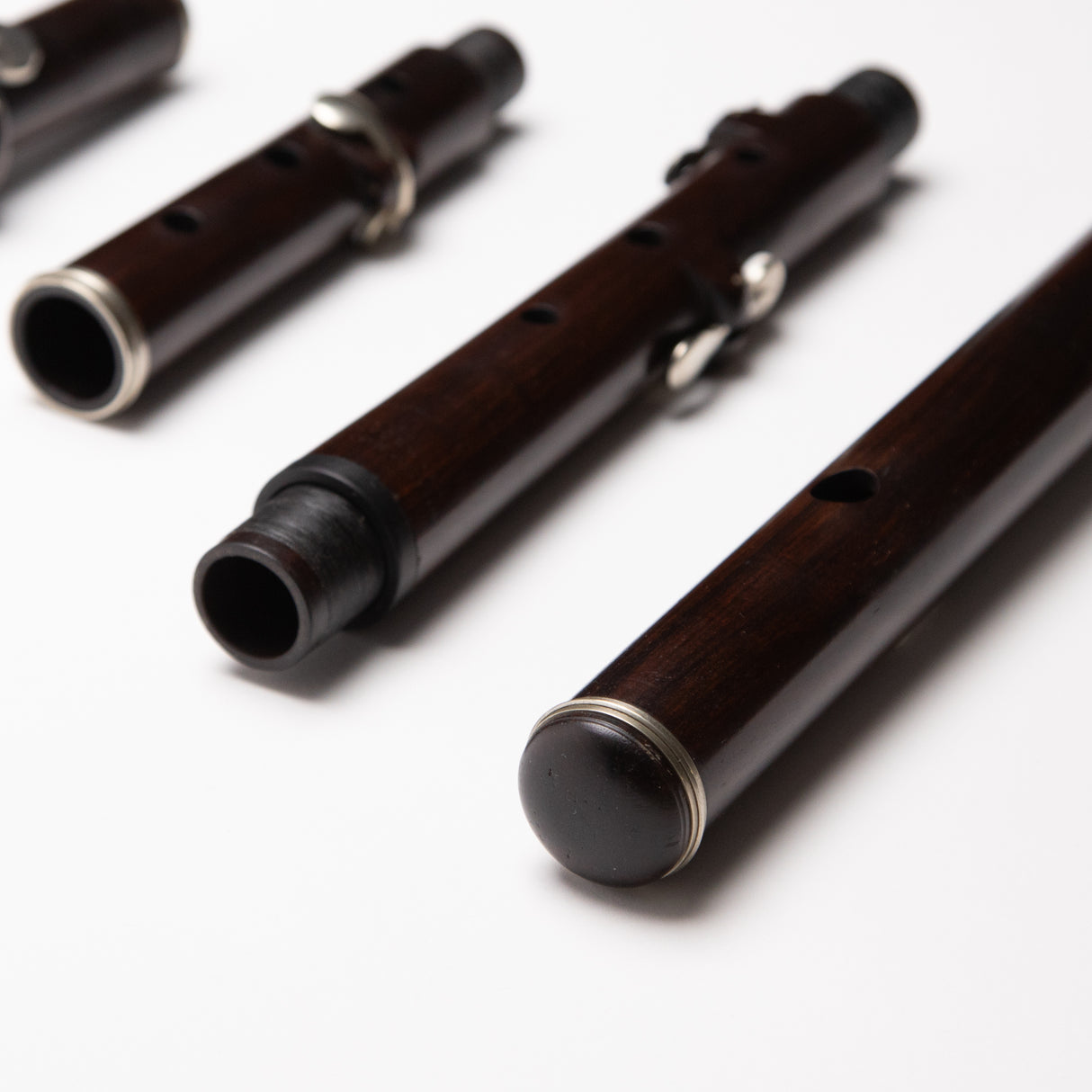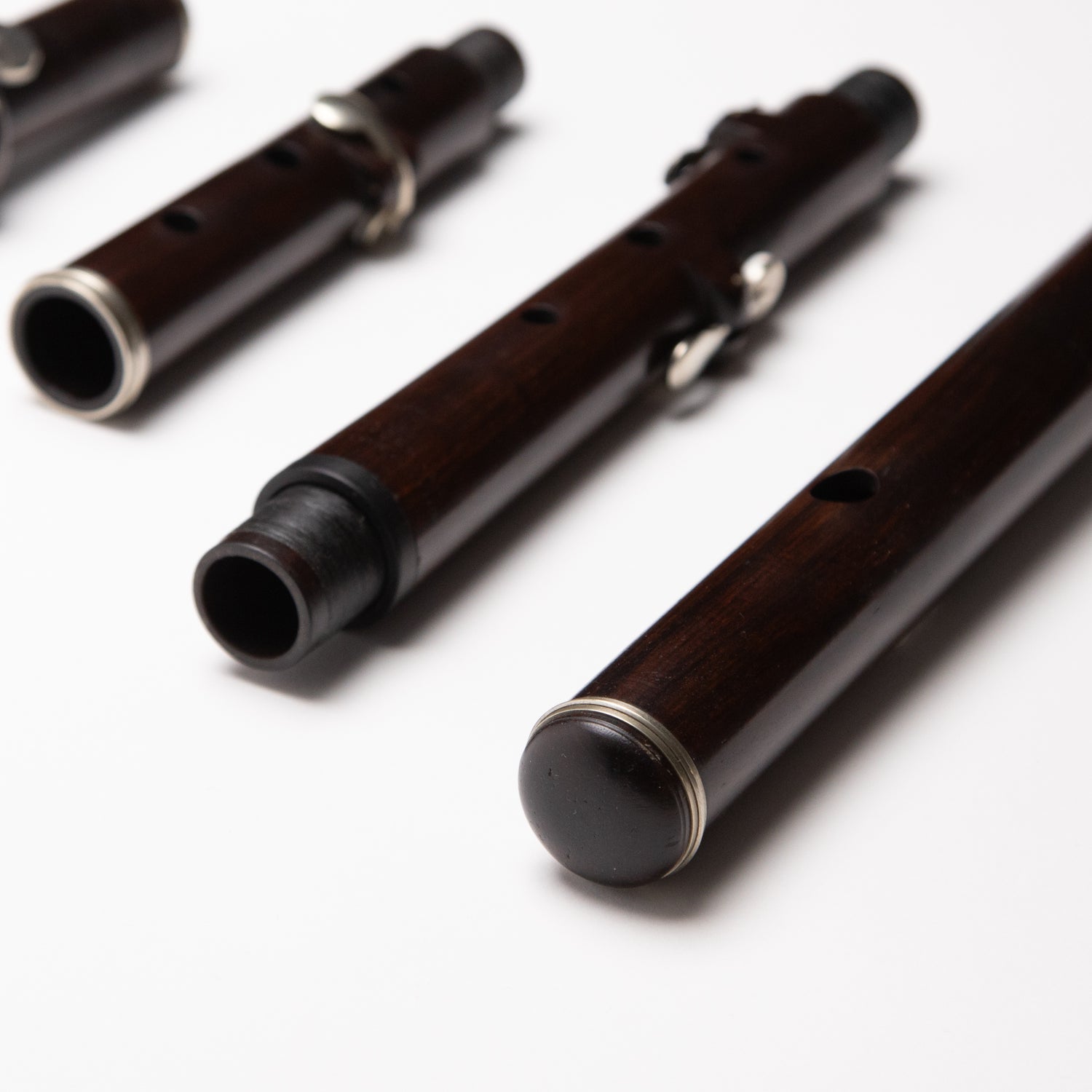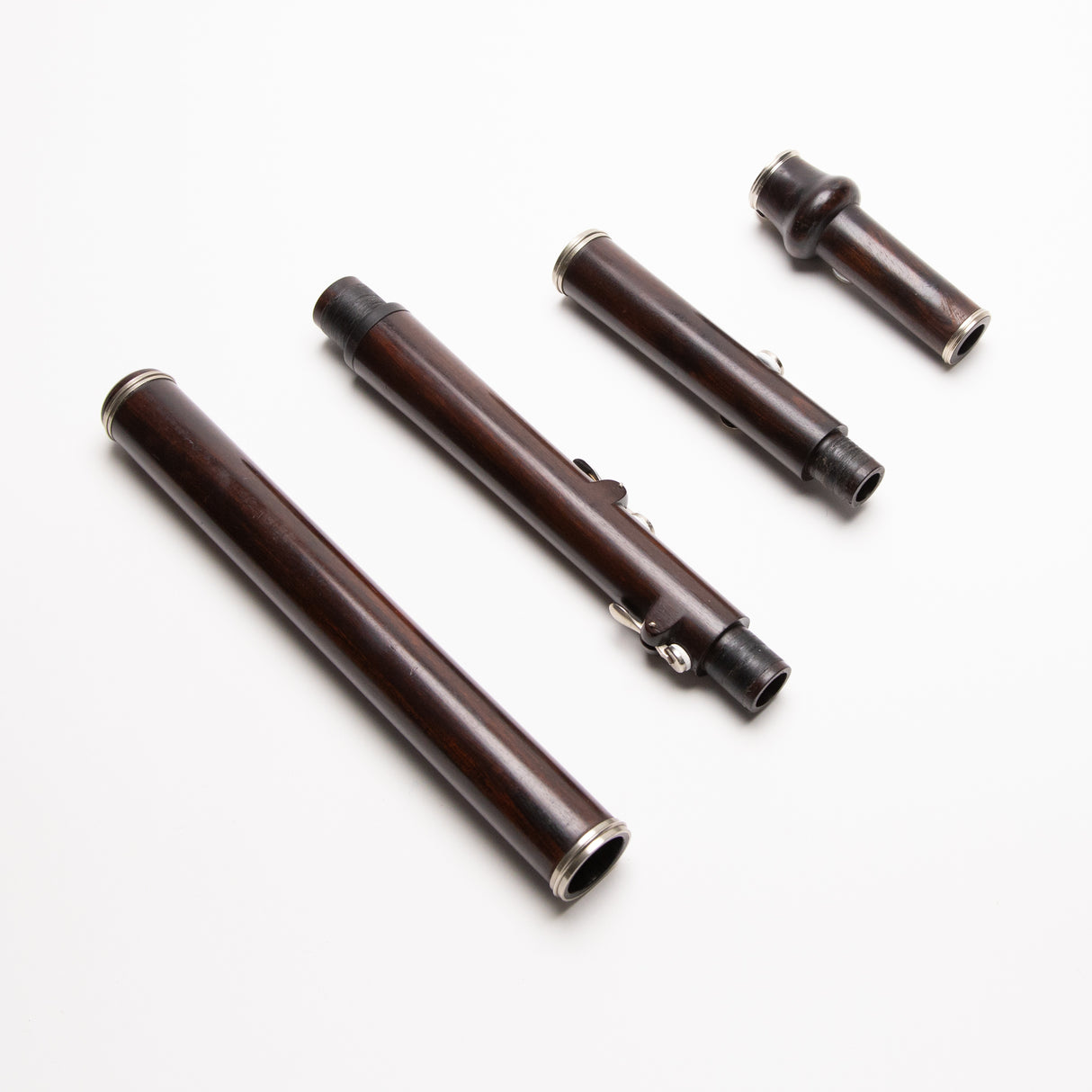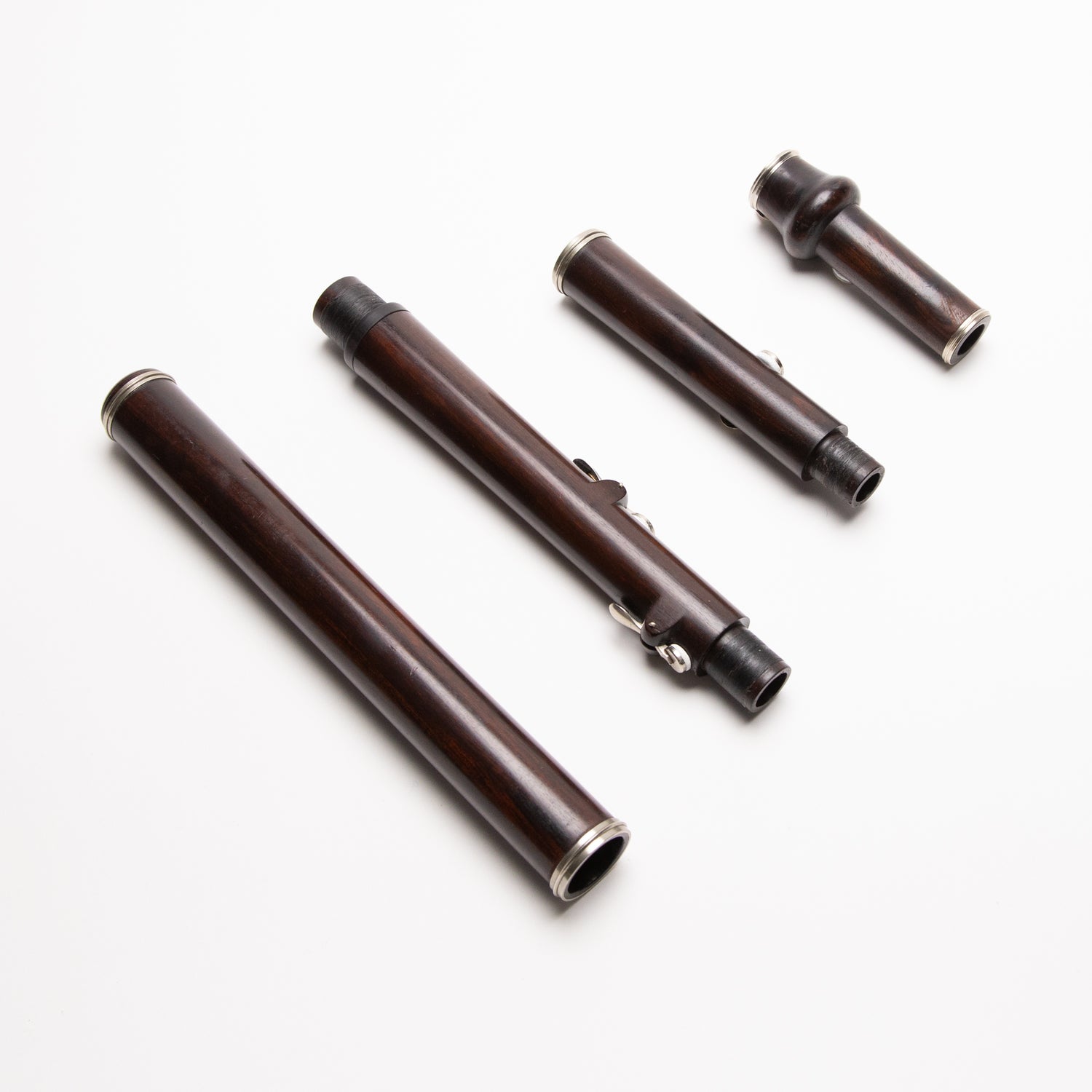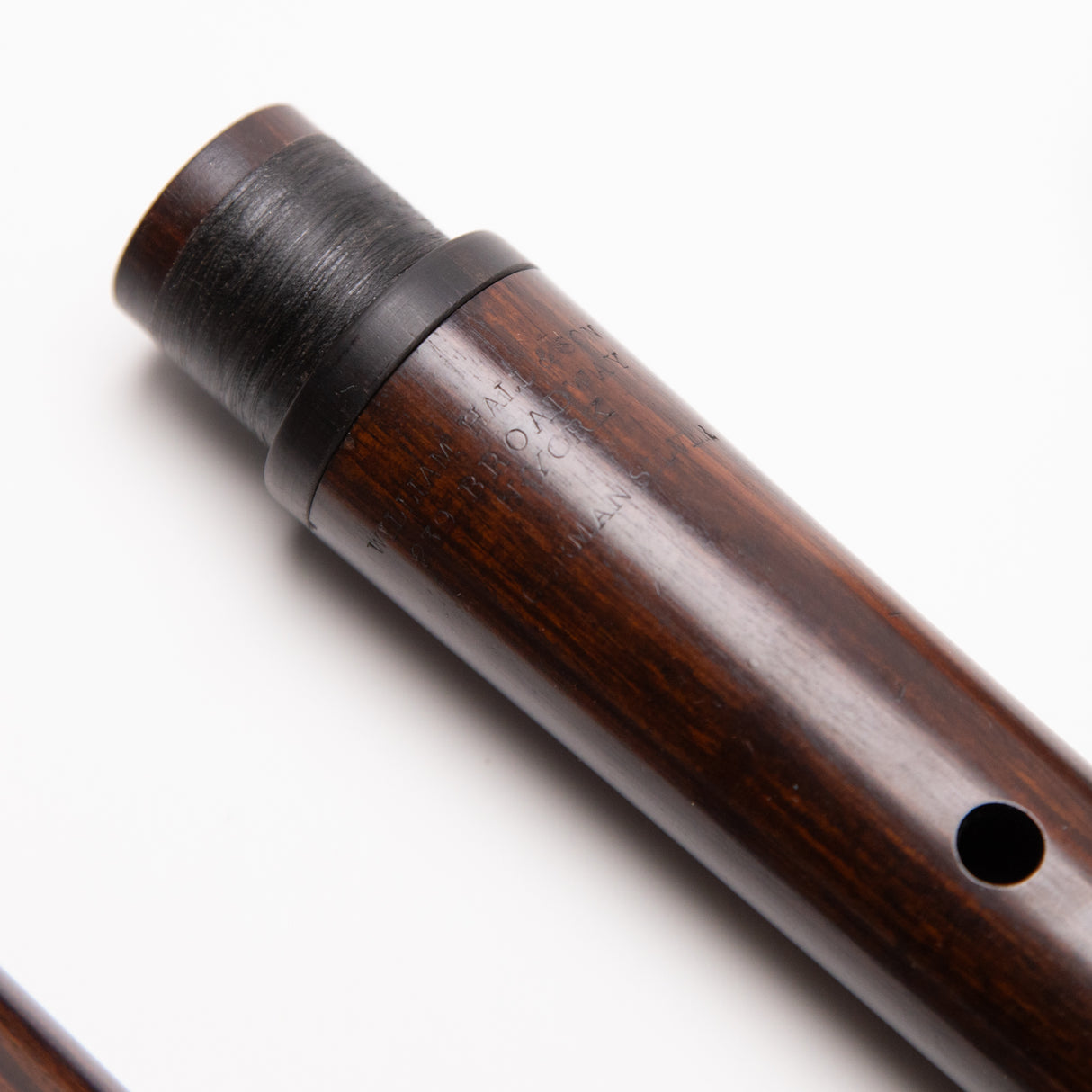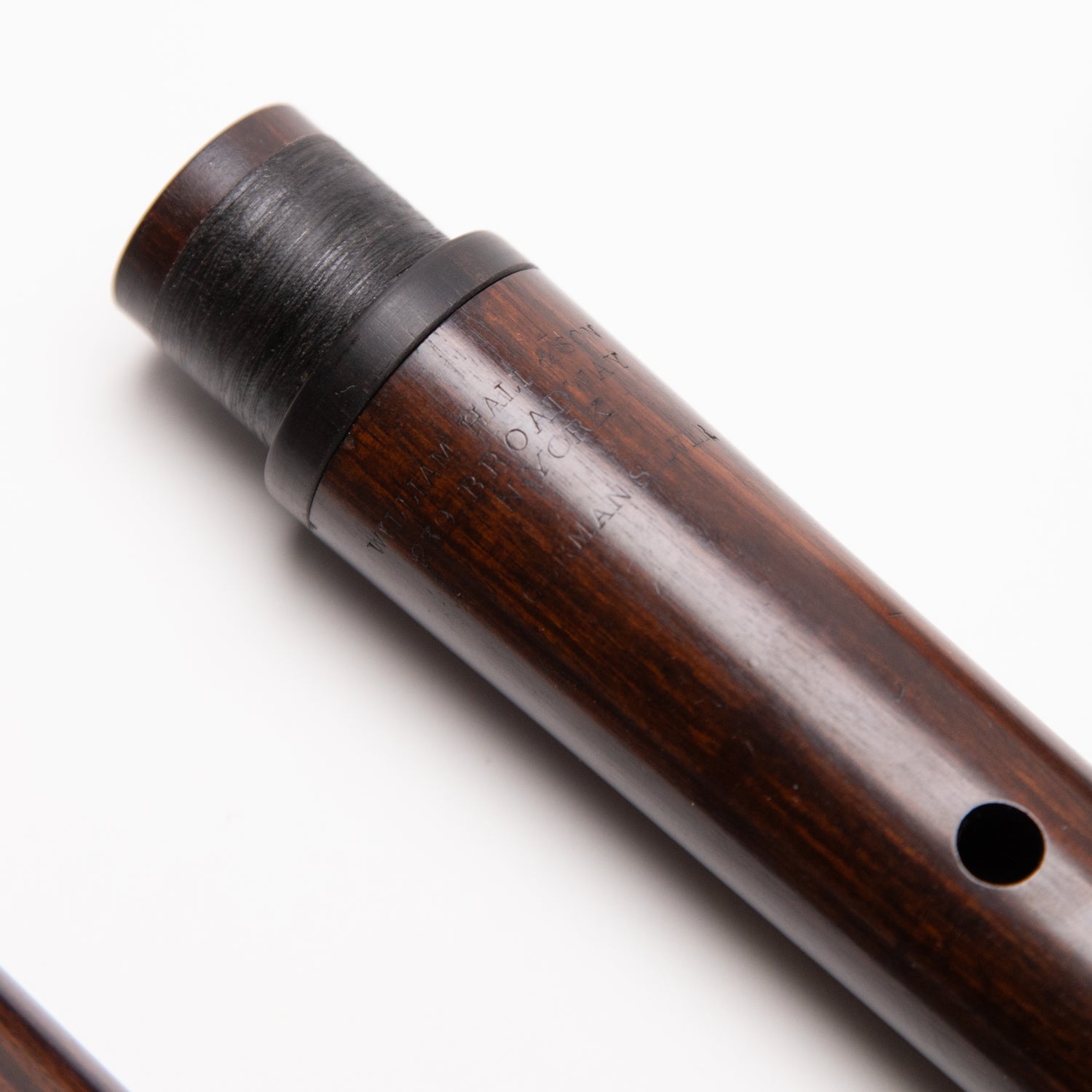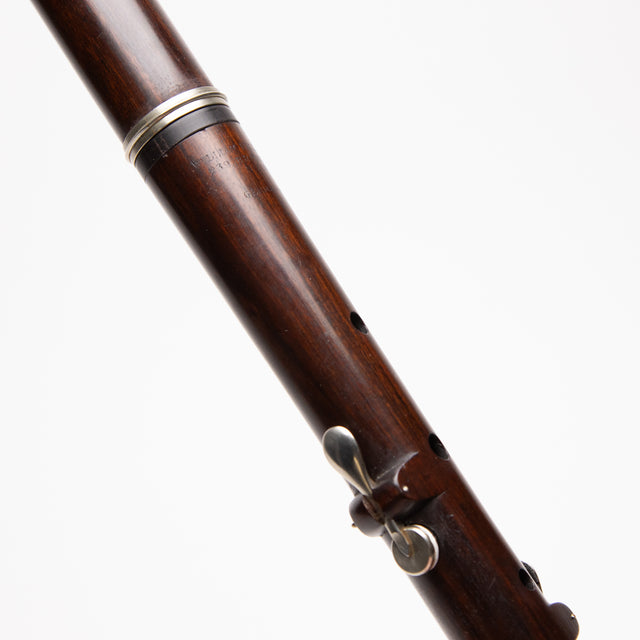This is an antique American 4-key flute made by William Hall & Son of New York in the mid 1800s. It has makers marks on all sections and has been meticulously restored to full playing condition.
It has a relatively small bore and small tone holes, typical of American flutes of that period, and will suite players who like a flute with low breath requirements. It responds well to a gentle touch and focused embouchure and the small tone holes enable crisp ornaments.
It is made from beautiful Cocuswood and has German Silver keys and rings. It does not have a tuning slide, but the head joint can be pulled out a few mm to play at A=440 hz. Included is a removable spacer ring, made from African Blackwood, that fills the gap between head and body at the extension needed for playing at modern pitch (A=440 hz).
William Hall was born in Sparta, NY, in 1796 and died in New York in 1874. He worked as an apprentice for Meacham until 1812, when he joined the militia. After the war he worked with John Firth, for E. Riley, in New York. In 1820 he established independently as a musical instrument maker, and in 1821 partnered with Firth as Firth & Hall, and then from 1831 with Sylvanus Pond as Firth, Hall & Pond. In 1847 he established independently, with his son James F. Hall as William Hall & Son. They made pianos in addition to flutes and other instruments, and in 1855 employed 25 men and 5 boys. In 1875 the company was bought by Ditson. They operated at the 239 Broadway address (which is on the makers mark for this flute) from 1848 to 1849, so this flute is from that narrow time period.
It has a relatively small bore and small tone holes, typical of American flutes of that period, and will suite players who like a flute with low breath requirements. It responds well to a gentle touch and focused embouchure and the small tone holes enable crisp ornaments.
It is made from beautiful Cocuswood and has German Silver keys and rings. It does not have a tuning slide, but the head joint can be pulled out a few mm to play at A=440 hz. Included is a removable spacer ring, made from African Blackwood, that fills the gap between head and body at the extension needed for playing at modern pitch (A=440 hz).
William Hall was born in Sparta, NY, in 1796 and died in New York in 1874. He worked as an apprentice for Meacham until 1812, when he joined the militia. After the war he worked with John Firth, for E. Riley, in New York. In 1820 he established independently as a musical instrument maker, and in 1821 partnered with Firth as Firth & Hall, and then from 1831 with Sylvanus Pond as Firth, Hall & Pond. In 1847 he established independently, with his son James F. Hall as William Hall & Son. They made pianos in addition to flutes and other instruments, and in 1855 employed 25 men and 5 boys. In 1875 the company was bought by Ditson. They operated at the 239 Broadway address (which is on the makers mark for this flute) from 1848 to 1849, so this flute is from that narrow time period.
Condition: Used - Excellent
Condition: Details:
Payment & Security
Payment methods
Your payment information is processed securely. We do not store credit card details nor have access to your credit card information.


